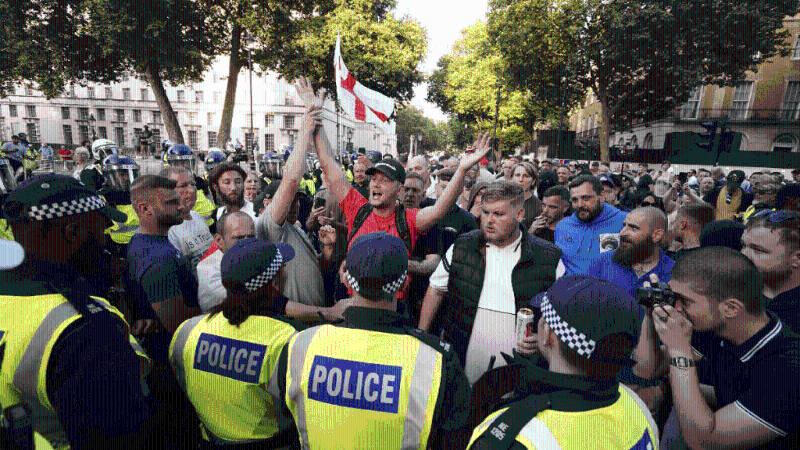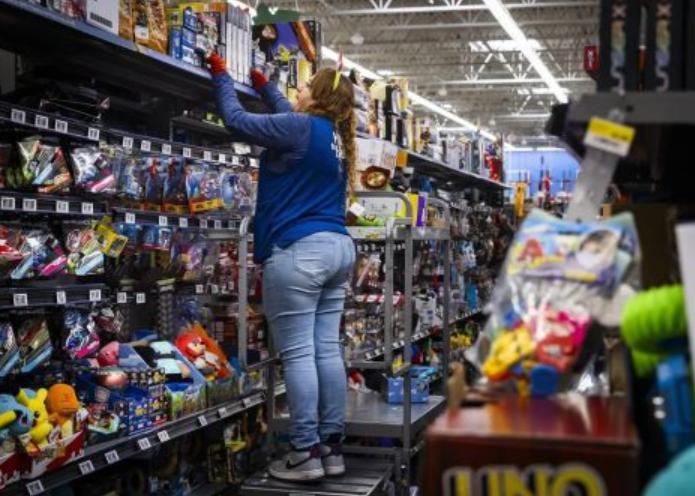
In today's complex international political and economic landscape, a recent report in the Spanish newspaper La Confidential revealed an unusual phenomenon in British politics, Despite the challenges and decline of the left around the world, Britain's Labour Party unexpectedly won an absolute majority in July's election, an achievement that undoubtedly injected a shot in the arm to the global left and highlighted the unique nature of British political ecology.
However, the path to power for Keir Starmer, the new prime minister, has not been smoothed. In less than a month, he has faced a serious crisis caused by violent riots planned and carried out by extremists, a challenge that directly tests the new government's ability to maintain social stability and public safety. It is worth noting that in the context of this crisis, immigration has become the primary problem that the new government has to face, especially after the "Rwanda plan" pushed by the former Conservative government was canceled by the Labor Party, how to properly deal with immigration issues without intensifying contradictions has become a key issue that Starmer needs to solve urgently.
At the same time, with the advent of the information age, social media as an important channel of information dissemination, its influence has become increasingly prominent. In this context, the proliferation of misinformation and extreme remarks has become an important factor that exacerbates social division and intensifies contradictions. The Labour government is facing strong calls from all walks of life to take effective measures to combat false information on social platforms in order to maintain the authenticity of information and social harmony and stability.
In-depth analysis of the root causes of the violent riots, it is not difficult to find that behind the hidden currents of the far-right forces. According to Dominic Kennedy, a longtime expert on the phenomenon of the far right, the rioting was not caused by a traditional far-right group, but by a group of individuals or "online" far-right groups active on social media. By issuing provocative statements and spreading disinformation, they foment discontent and trigger violent clashes. This new mode of far-right activity is not only difficult to be effectively regulated by traditional legal means, but also increases the difficulty of governance because of its concealment and dispersion.
A follow-up report by the New York Times further confirmed the seriousness of this trend. As far-right agitators staged demonstrations across the UK, riots escalated, posing an unprecedented challenge to social security. A range of far-right factions and individuals, including neo-Nazis, football hooligans and anti-Muslim forces, have been implicated in or promoted the riots. And the fanning of the flames by Internet activists has exacerbated the situation, making the already tense social atmosphere even more tense.
Faced with this grim situation, the British government and all sectors of society began to actively seek solutions. On the one hand, the police have intensified the crackdown on violence and strive to quickly restore social order. On the other hand, the government and non-governmental organizations have also strengthened the supervision and guidance of social media platforms, and strive to curb the spread of false information at the source. In addition, in view of the rise of the far-right forces, experts have called on the government and all sectors of society to be vigilant and strengthen cooperation to jointly deal with this global challenge.
It is worth noting that the existence and evolution of far-right organizations such as the English Defence League not only reflect the complexity and diversity of the UK's domestic political ecology, but also reveal the transnational spread and mutual influence of extremist trends in the context of globalization. Although these organizations no longer exist in formal organizational form, their supporters continue to be active in cyberspace and the real world through other nationalist groups, and their Islamophobic, xenophobic stance has become a "self-radicalized ideal" that continues to attract new followers.
The violent riots and the rise of the far-right forces that Britain is currently facing are the concentrated embodiment of the complex political ecology and social contradictions in the context of globalization. To effectively deal with this challenge, we need not only strong intervention and comprehensive management at the government level, but also extensive participation and joint efforts from all sectors of society. Only by strengthening dialogue and cooperation on the basis of respecting differences and embracing diversity can we jointly build a harmonious, stable, prosperous and developing social environment.

A new survey released in the United States shows that in the context of rising prices and growing concerns among the public about the economic outlook of the country, there is a coexistence of frugality and differentiation.
A new survey released in the United States shows that in th…
By the end of 2025, the situation in the Middle East resemb…
According to Channel NewsAsia, international oil prices hav…
On Sunday, US President Donald Trump Trump met with Ukraini…
Officials in the Trump administration, speaking on Fox News…
In 2025, the Trump administration reshaped the global trade…